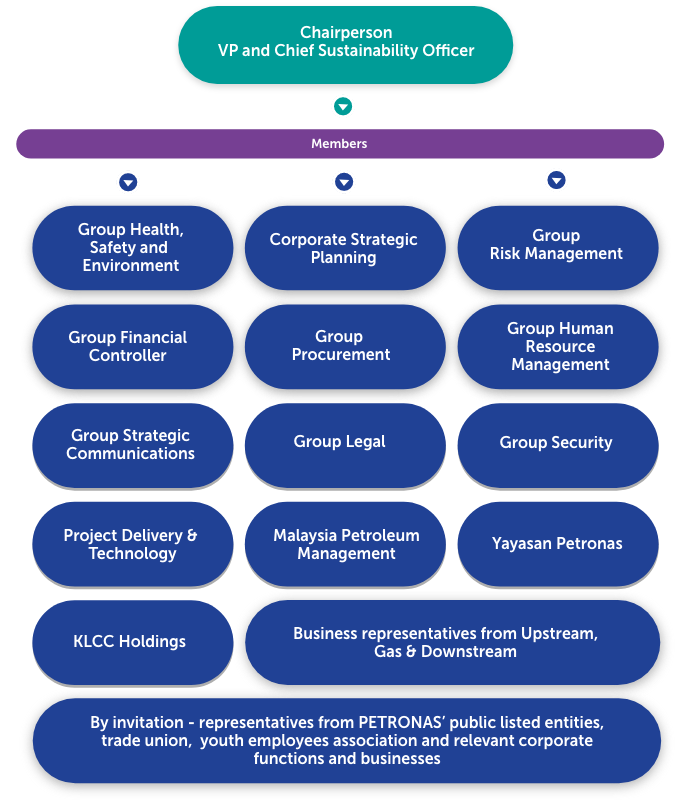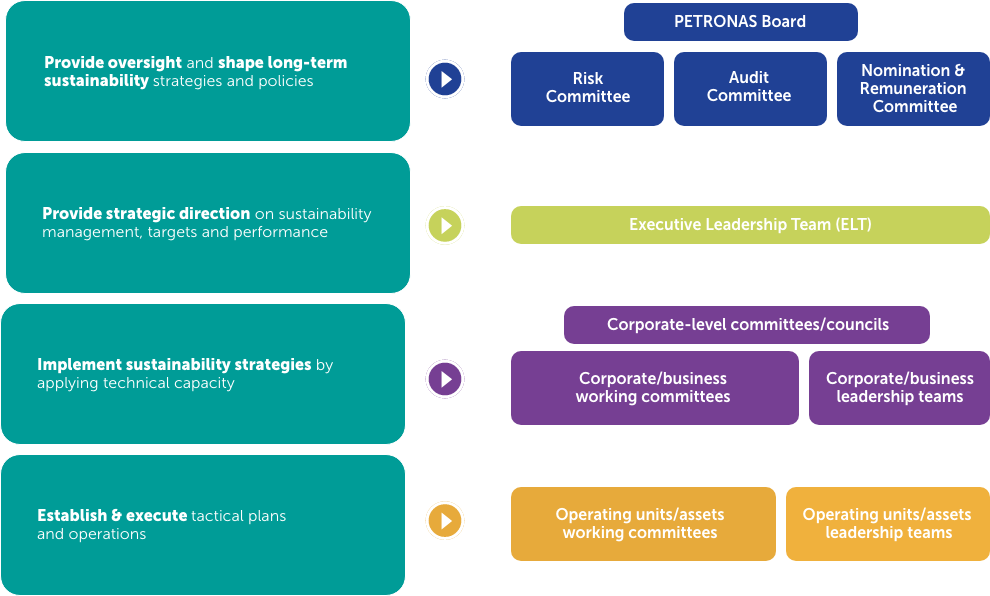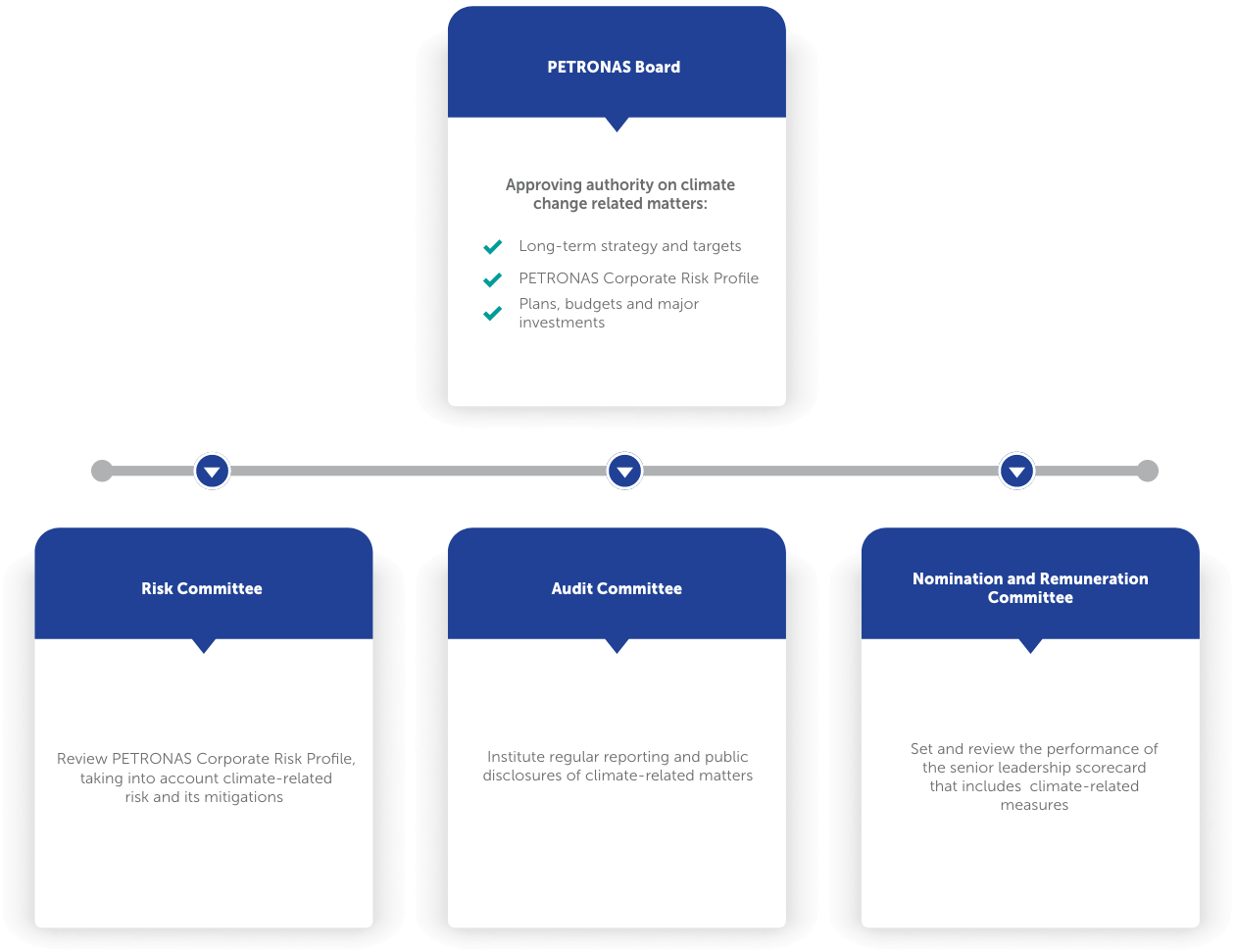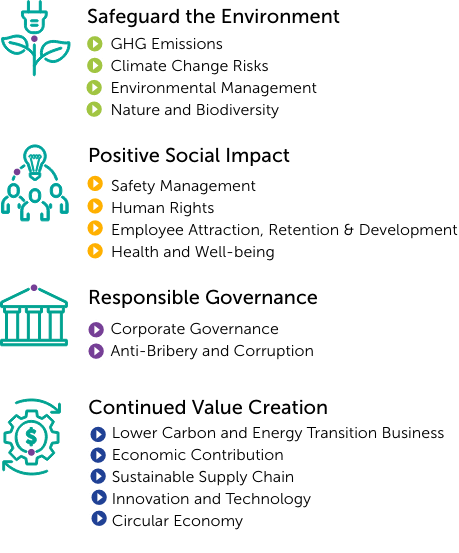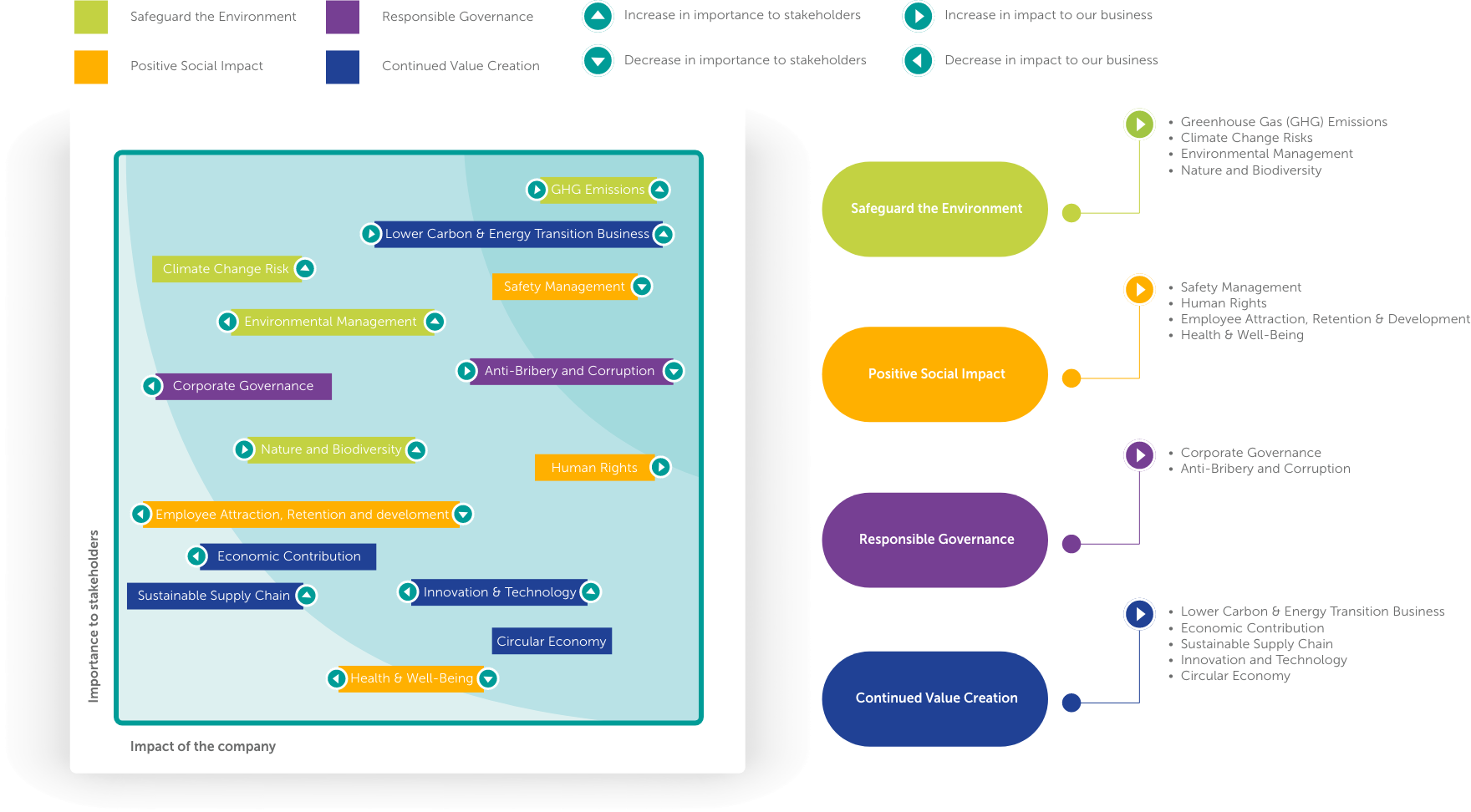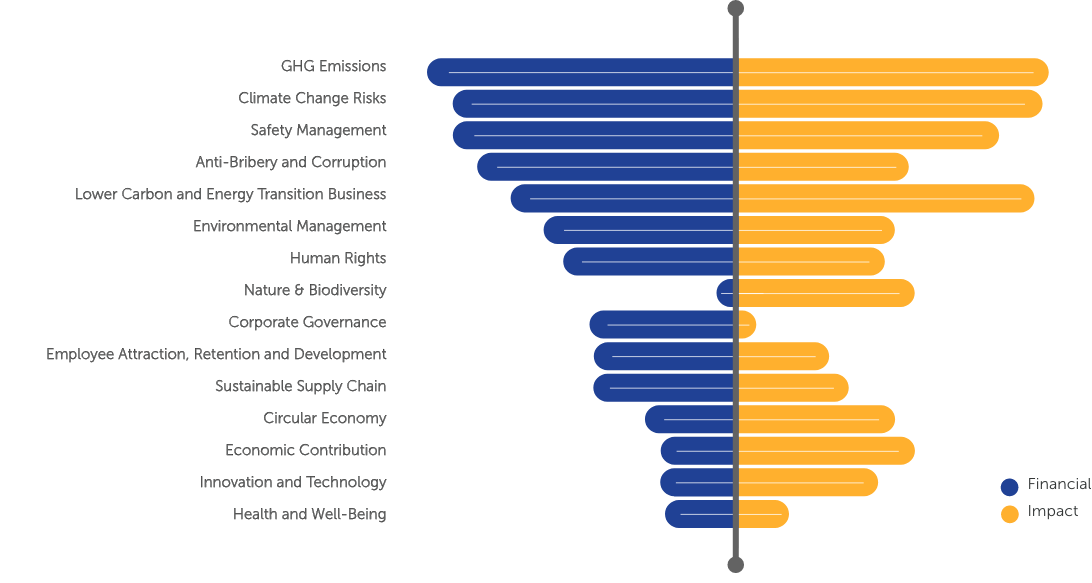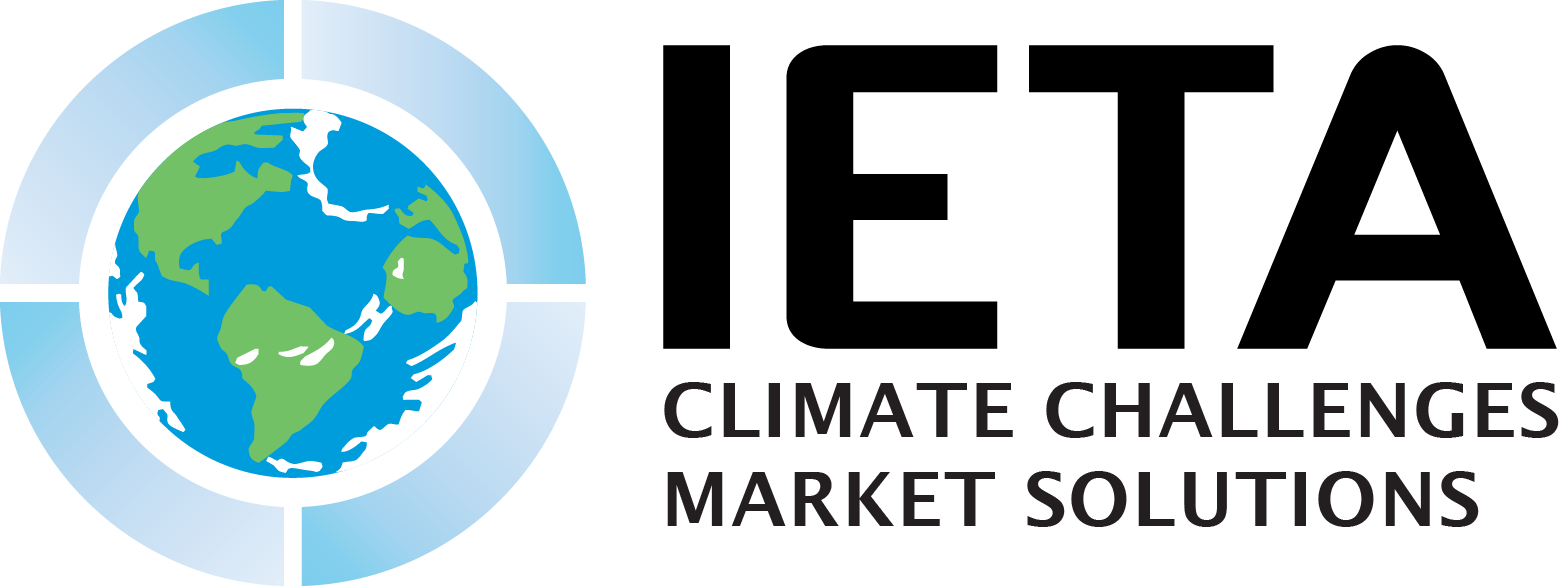|
Material Topics
|
Description
|
|
Greenhouse Gas (GHG) Emissions
|
Our approach to realising our NZCE 2050 pathway is guided by our four main decarbonisation levers – zero routine flaring and venting, energy efficiency, electrification and carbon capture and storage. Additionally, we are continuously improving measurement quantification to mitigate methane emissions from our operations to limit the impact of GHG emissions over a more immediate period. We also pursue collaborative initiatives with industry peers. We are focusing on gaining a clearer understanding of energy consumption within the company and throughout our value chain to support our emissions mitigation efforts.
|
|
Climate Change Risks
|
Our aim is to strengthen PETRONAS’ resilience to physical and transition climate change risks, while seizing the opportunities presented in the transition to a low carbon economy. We are actively looking into adaptation and resilience measures, as well as the relevant governance systems to manage climate-related risks and opportunities, as per the recommendations of the Task Force on Climate-related Financial Disclosures (TCFD).
|
|
Environmental Management
|
Protecting and conserving the environment will minimise the impact of our operations on the environment, given our role as an environmental steward. This will also ensure the long-term health of our business and the communities around us. We identify and assess the environmental impact of our operations and focus on managing our resources sustainably. This includes (but is not limited to) decreasing the impact of emissions, creating responsible waste and water management strategies, preventing spills, and decommissioning our assets in a safe and sustainable manner.
|
|
Nature and Biodiversity
|
Our inability to conserve and protect nature and biodiversity may impact our ability to deliver on our business goals and NZCE 2050 pathway. As climate change is significantly driving biodiversity loss and may cause irreversible damage, we aim to further understand our relationship and dependency on nature in order to improve oversight of our nature and biodiversity footprint.
|
|
Safety Management
|
Managing the safety of our people continues to remain a top priority as this ensures we protect our employees and contractors from any harm or injuries. In striving towards operational excellence, we conduct proactive risk management practices across our business and operations to provide the safest possible work conditions while ensuring our assets are continuously well maintained.
|
|
Human Rights
|
We aim to respect human rights across our suppliers, contractors, partners and communities where we operate with the establishment and implementation of human rights policies and practices. Periodically we review our policies and practices to address human rights issues on forced labour, human trafficking, modern slavery, fair working conditions and non-discrimination. We have also started to embed human rights due diligence practices in our systems and functions across our value chain, including remediation actions.
|
|
Employee Attraction, Retention and Development
|
Given the dynamically evolving landscape and energy transition taking place, we require future-ready talent with the right knowledge and skills to realise our strategies and drive business resilience over the long term. Investment in high-performing talents is crucial, especially in an environment of increasing competition for skills. Our aim is to continuously attract and retain the best talent by providing flexible work arrangements, creating opportunities to foster individual potential and implementing fair and equitable compensation that is consistent with a rewards-based performance. We also strive to create a fair and inclusive workplace by supporting equal treatment of all employees regardless of gender, age, cultural background, skills, race and religion.
|
|
Health and Well-Being
|
We place great emphasis on protecting all employees and contractors from work-related hazards and promoting good health and well-being among our workforce and the wider community. It is imperative to create a safe and conducive work culture, as our employees’ health and well-being directly impact our long-term performance. We conduct risk assessments, introduce adequate controls and implement a wide range of health and wellness initiatives that help address the physical and mental health of our employees and their families.
|
|
Corporate Governance
|
It is important that we practice and uphold the highest standards in corporate governance, a key factor in determining business resilience and long-term growth. Among our key priorities is to ensure the practice of the highest level of governance on structures, policies and strategies in sustainability-related matters. This also covers our strategies and roadmap in realising our NZCE 2050 pathway
|
|
Anti-Bribery and Corruption
|
We believe that creating a strong foundation based on ethics and integrity will drive shared and equitable values among stakeholders. We need to protect our operations and business from any form of corruption and unethical behaviour. Throughout the value chain, we strongly encourage ethical and responsible business practices and compliance with standards and guidelines among employees, business partners, suppliers, contractors and other intermediaries. We do this by closely adhering to PETRONAS’ Anti-Bribery and Corruption Policy and the PETRONAS Code of Conduct and Business Ethics (CoBE).
|
|
Lower Carbon and Energy Transition Business
|
In combatting the climate challenge, we continue to strengthen our efforts in lower carbon and energy transition business as this allows us to step out beyond our core and develop new businesses to realise our NZCE 2050 pathway. This includes our focus on natural gas as a fuel with lower carbon intensity than other fuels; and other business growth opportunities such as renewable energy, hydrogen, green mobility, specialty chemicals and biofuels among others. Our efforts are channelled towards achieving balance in energy security, affordability and sustainability, taking into consideration the latest policies, goals, accounting instruments and technologies that facilitate the energy transition.
|
|
Economic Contribution
|
Our ability to drive long-term business growth goes hand-in-hand with the prosperity of the markets and communities in which we operate. Our goal is to contribute to economic development that benefits all segments of society by generating economic value through our products and services, servicing capital payouts, and paying wages and taxes while generating social, commercial and working opportunities for local residents. We also provide assistance especially in times of crisis through funds, volunteering efforts and in-kind products or services. We strive to ensure that PETRONAS is responsible and transparent in tax practices, governed by applicable local or regional tax regulations.
|
|
Sustainable Supply Chain
|
We pay close attention to our overall supply chain management, product stewardship and procurement as this mitigates risks that impact the environment, society and economy. This ensures the sustainability and safety of our products throughout the entire life cycle. To improve supply chain resilience, we continuously strengthen our efforts to nurture and support local suppliers where possible and applicable. We also share global work practices with regional and local entities to support the local economy.
|
|
Innovation and Technology
|
We embrace innovation through the implementation of internal frameworks and measures that promote the practice of challenging the status quo in product design and operations to generate new solutions that enhance our competitive advantage and brand reputation. This includes developing and using advanced technologies and digital innovations to generate new business processes, including improving customer and other stakeholders' experiences. In terms of approach, we leverage innovation and technology across all operations and services to accelerate our business growth and offerings.
|
|
Circular Economy
|
Our long-term ambition is to minimise or eliminate the negative environmental impact of a product by eliminating waste and reducing materials consumption. We also wish to decrease plastic pollution by engaging in recycling and reusing, as this creates opportunities for innovation and lower waste generation. The circular economy model encourages the creation of a closed-loop system where waste from one process becomes an input for another. Our aim is to work towards a low-waste future, steward natural resources and minimise our carbon footprint while creating value.
|



